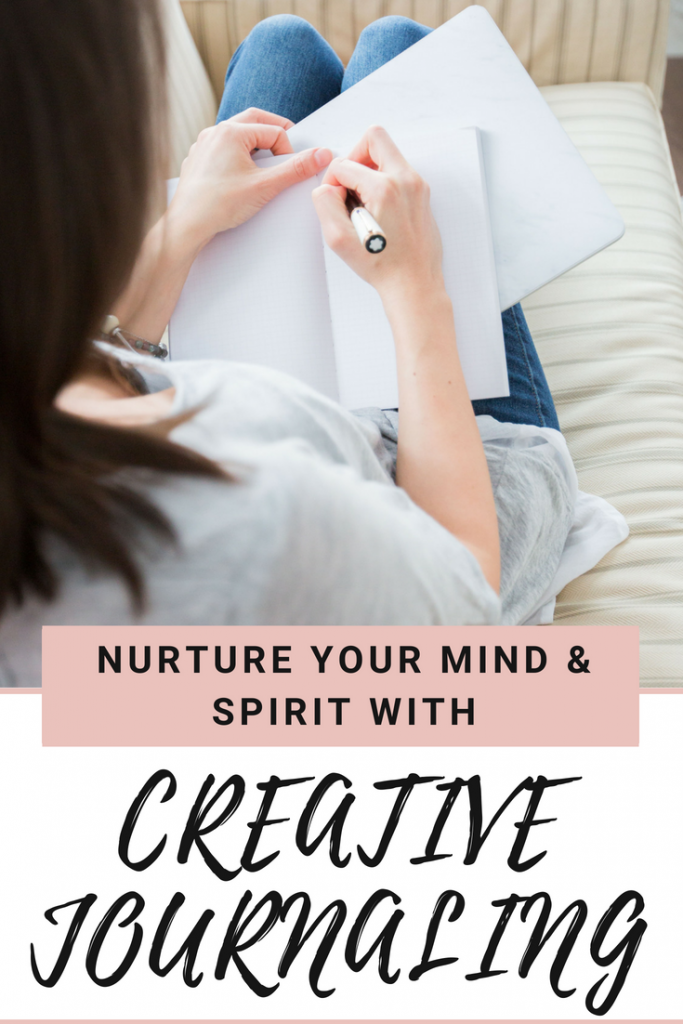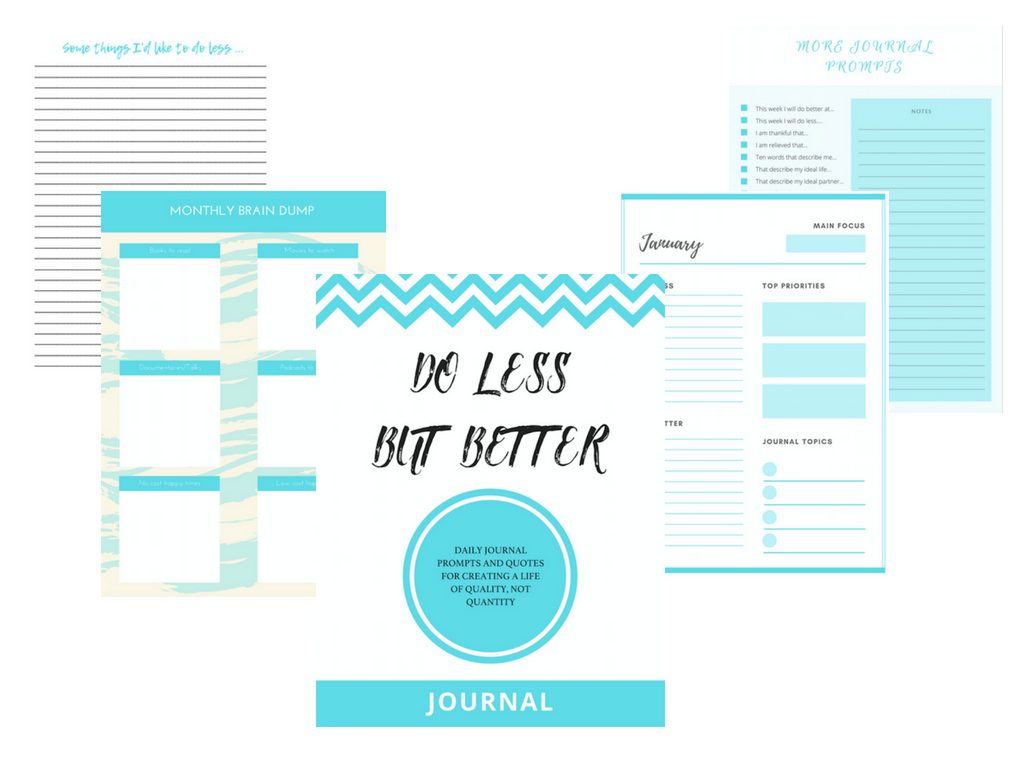Nurture Your Mind and Spirit Through Creative Journaling

This post is the third in our 5-part blog series on creative journaling, which can also be used as a ‘take it anytime’ 5-day creative journaling challenge. If you want to join in, there will be a task or two (or occasionally three) at the end of each post. See the other posts in the series here (I’ll add them as they go live over the next few days):
Part 1: Why You Should Keep a Journal if You’re a Creative Person
Part 2: How To Start a Creative Journal
Part 4: Boost Your Creativity By Journaling
Part 5: 5 Styles of Creative Journaling
Want to come back and take the challenge when you have more time? Bookmark this post (or Pin it) so you can find it again.

Disclosure: Sometimes my work here (and all around the web) contains affiliate links. Find out what that means here.
Journaling can really help you to nurture your mind and spirit. Whether you’re a writer, artist, creator, photographer, or other creative biz owner, your best creative work is born in your mind, and sometimes in your spirit.
If this sounds a little too woo-woo for you, it’s simply a way of saying some creative work comes from the head and some from the heart. Some creative work is sparked by ideas and thoughts, and some is sparked by feelings or emotions. Nurturing your mind and spirit is part of nurturing your creativity, and journaling can help.
First things first – Get your journaling head on
If you want to get the most out of your creative journal, you’re going to have to get your journaling head on. All I mean by this, is that you need to journal in a certain frame of mind.
If you’re truly trying to nurture creativity, you need to let go of your ‘sensible head’ and certainly your ‘work head’, and just let yourself dream, jot, doodle and free write. Let the ideas come from your heart and your head, and anywhere else they want to. Write down thought fragments, strange ideas and half-formed plans. Let your creativity take over and write down everything. You can trawl through it for gems later.
The benefits of a dream journal
Dream journaling may also sound a little odd to many commercial artists, but many authors, artists and musicians have discovered that keeping a dream journal can nurture their creativity. Dreams take on many different forms and can be used to inspire creative ideas.
The lead singer of the band “Train”, famously opened up in an interview that the smash hit “Drops of Jupiter” was written after he had a dream. So if you’re stuck for ideas, recording your dreams can be a great way to unlock your creativity again.
Learning to trust the authority in your voice
When you start to keep a creative journal, it trains you to trust the authority in your voice. It helps you learn to stop second guessing and questioning your creativity.
A creative journal doesn’t have rules. Instead, it encourages you to write or draw freely. There’s no corrections made to anything and nothing you put in the journal is ever wrong. So, you’ll start to trust your creativity, rather than question it.
A lot of what you create in your journal won’t get used in your commercial work, but some will. That in itself can be very freeing. As you get into journaling, and free your creative brain, you may find you create more and more usable work or ideas in your journal.
Growing your thoughts, insights and responses
Creativity often stems from thoughts, insights and emotional responses. After you’ve jotted your thoughts down into the journal, you can go back to them another day and expand upon what you wrote. You might surprise yourself with your own wisdom, or find you’ve ‘connected the dots’ on a topic in a surprisingly insightful way, through journaling.
Look at the ideas you’ve written down and see how they can be expanded. Often, it’s just the initial ideas which are the hard part. Once they’re written down, you may find it easier to develop them into something truly insightful.
Can’t wait to start journaling? Consider grabbing a copy of my ‘instant download’ Do Less But Better printable journal. It has prompts, drawing/mind-mapping pages, and lots of quotes to inspire your creativity.
One last thought
To nurture the creative side of your mind and spirit (and make getting your journaling head on easier) it helps to use your journal every single day, preferably in a different place and at a different time from your usual workspace and routine. Some people have a special journaling spot, in a garden or park, in front of the fire in the evening, or at the kitchen table first thing in the morning.
Doing our 5-day journaling challenge?
Today’s tasks are:
Pick your journaling spot and time. Don’t worry too much about whether they’ll work for you long term. You can experiment until you find something that does – but start that experiment today by picking somewhere to try.
Do some journaling. Let your creativity completely take over. Aim for at least a page, preferably 2 or 3.
Put your journal by your bed tonight (and every night). If you wake from an interesting dream, consider recording whatever you remember about it in your journal.






Be the first to comment.